POST Arnhem
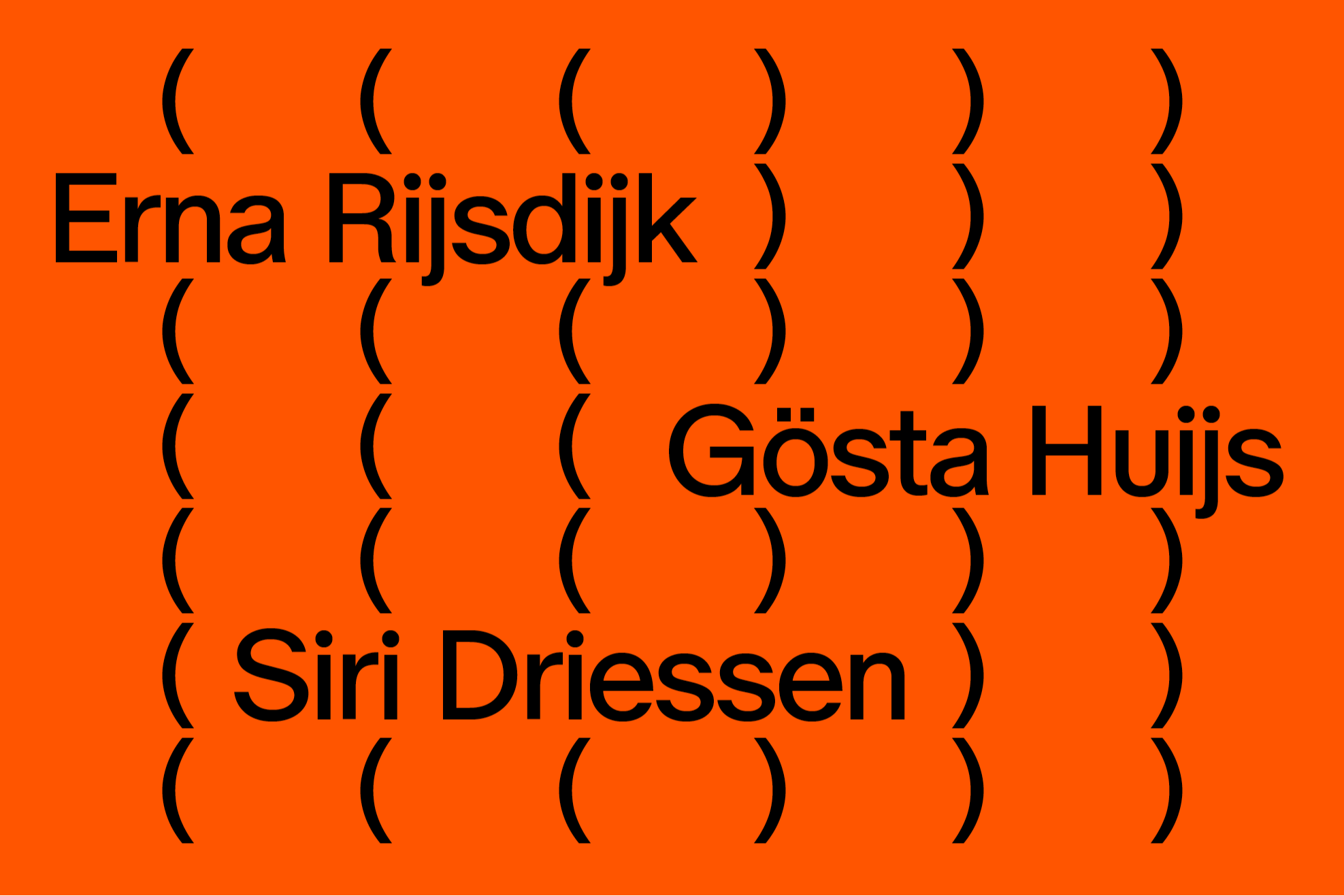

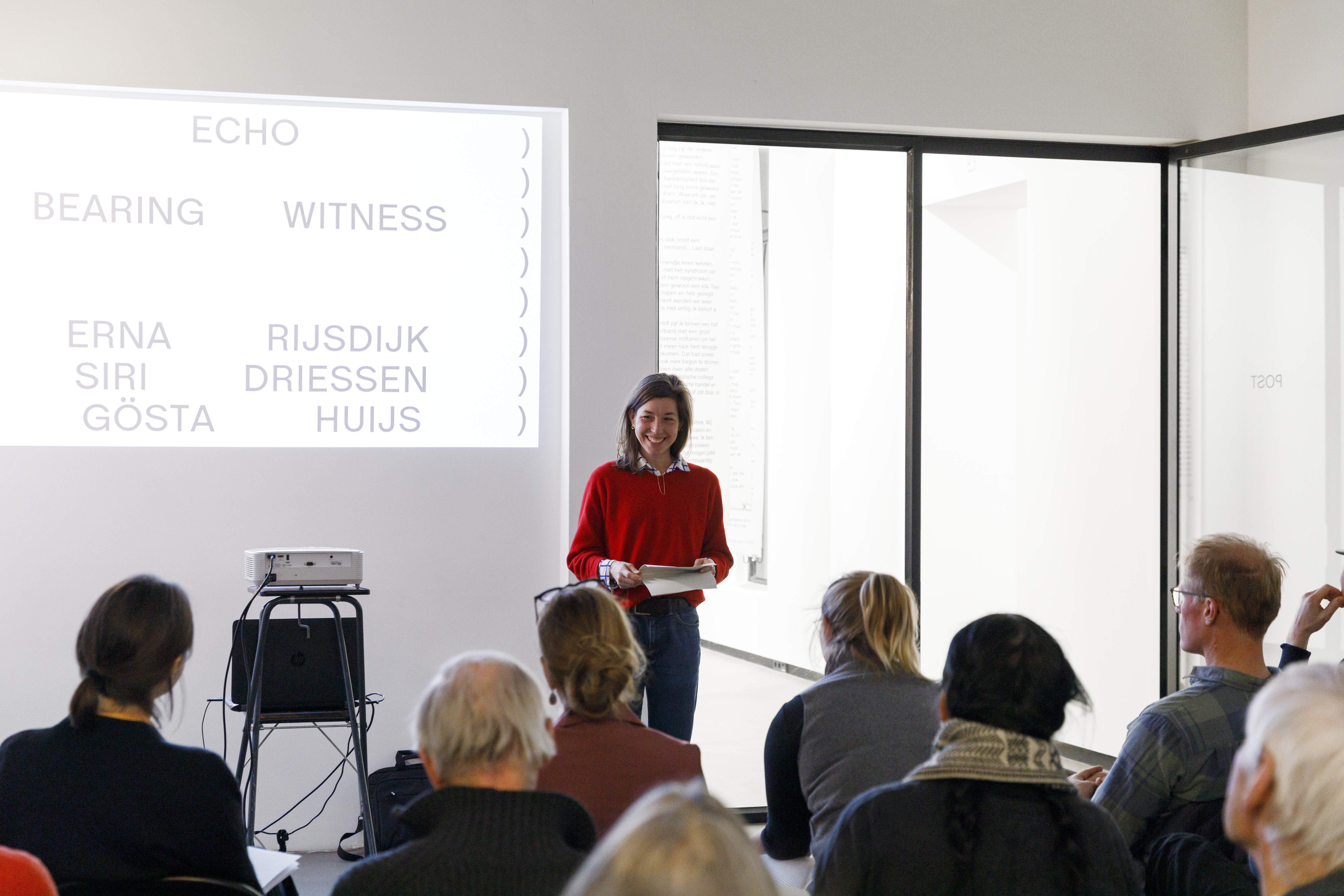
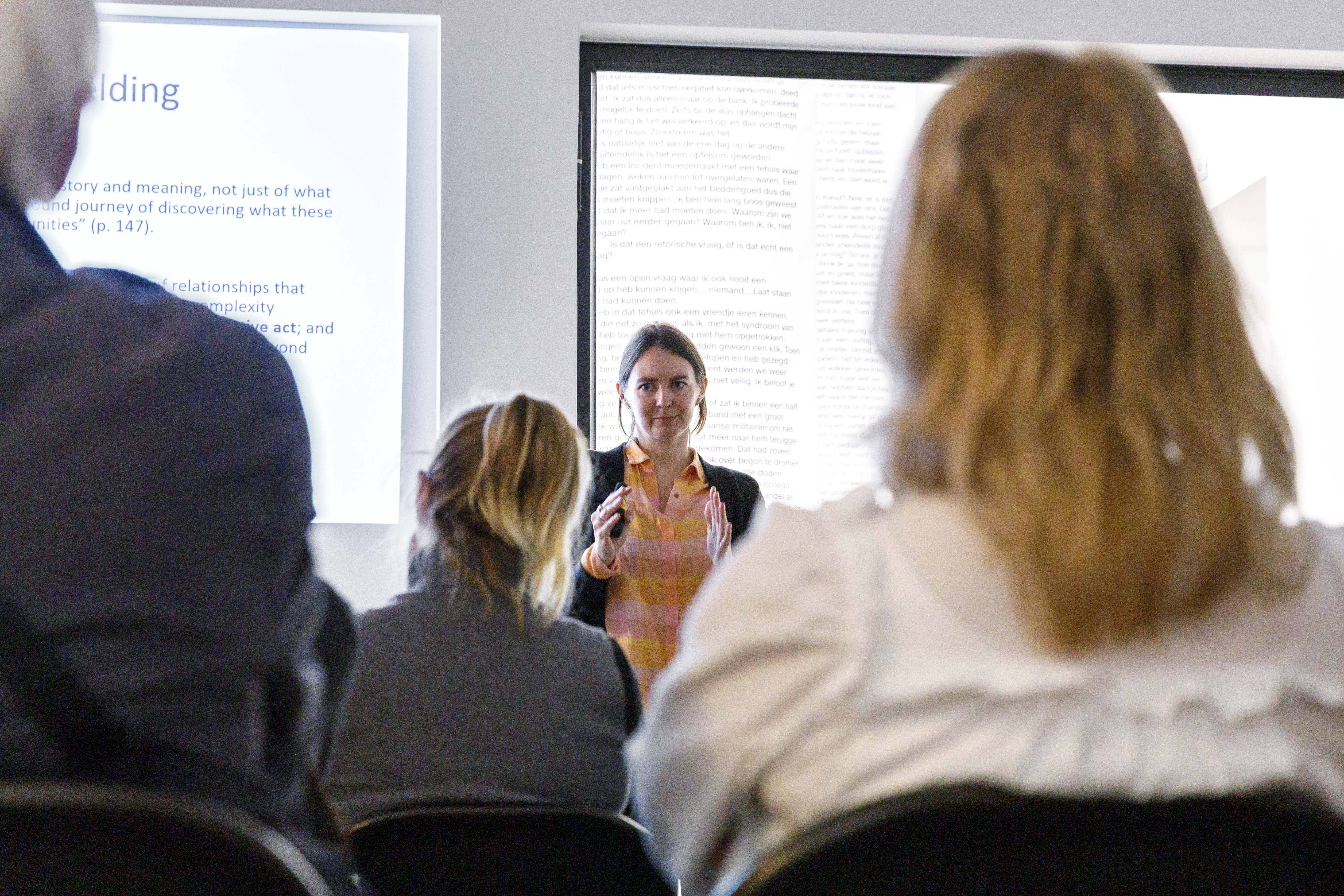
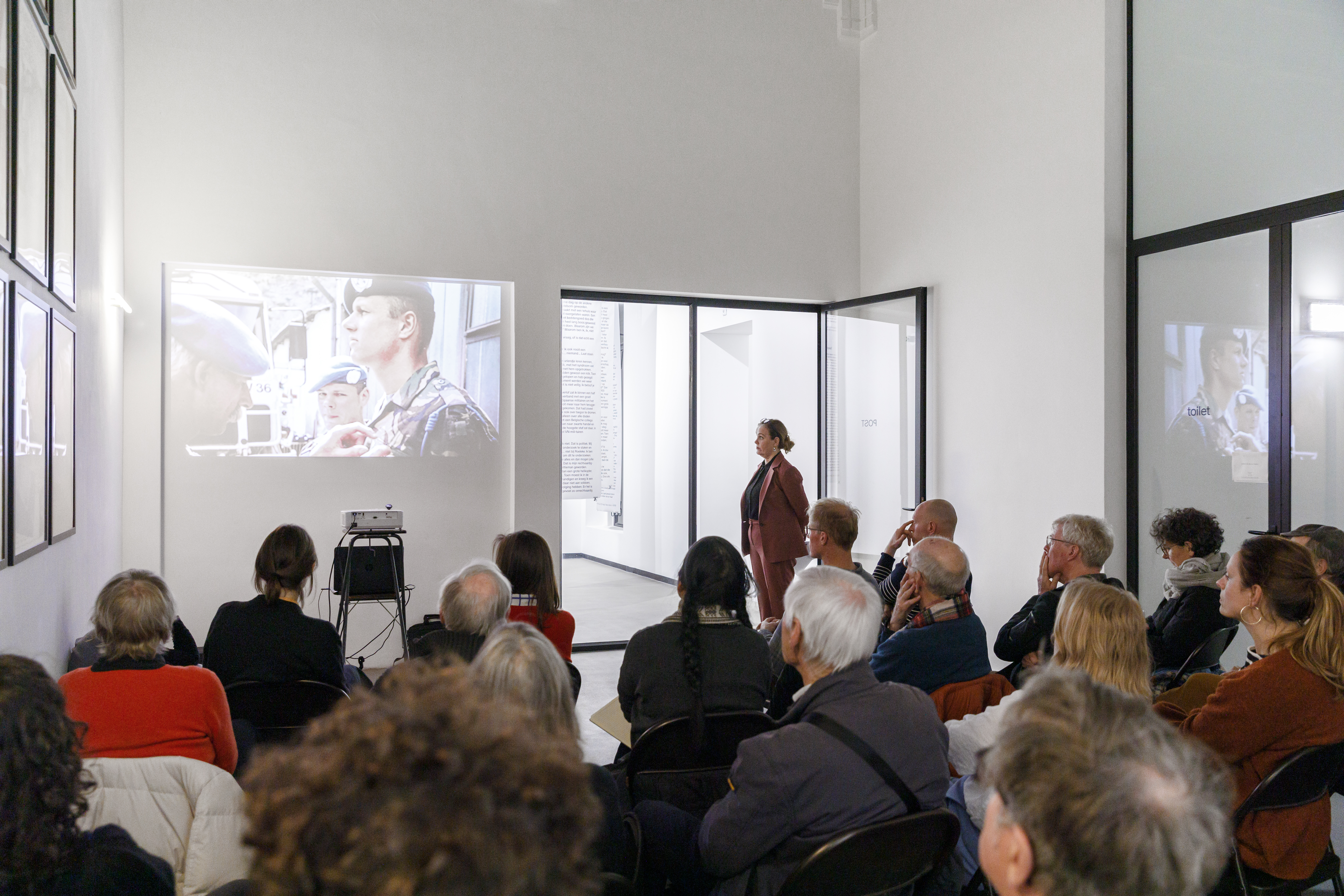
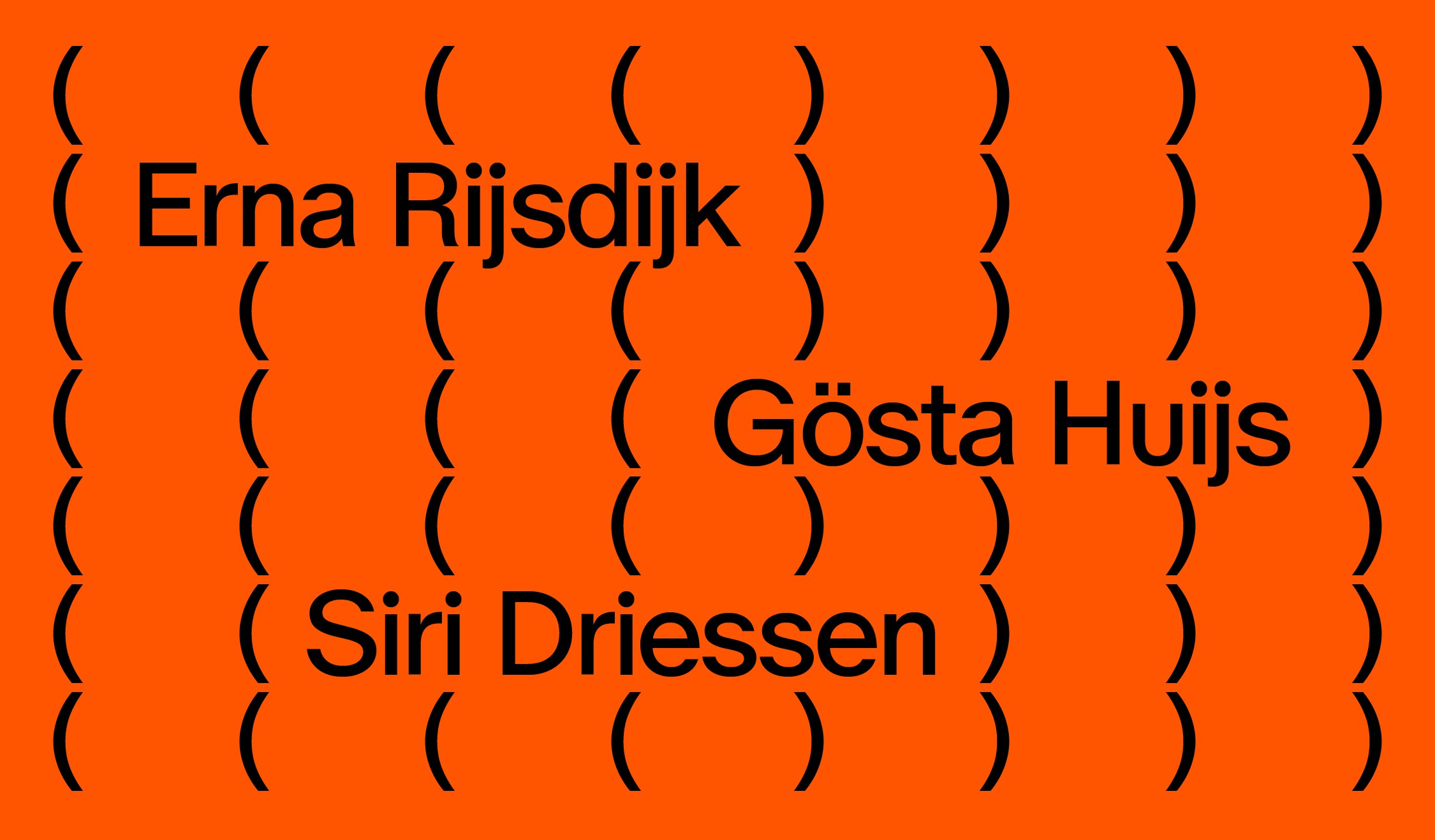
ECHO
ECHO: Lecture night Bearing Witness
Wednesday 5 March
20.00 - 22.00
Weverstraat 40, Arnhem
Language: Dutch
Entrance fee: €5 including one beverage
Students: €2.50 including one beverage
Buy your ticket here
How can we think about war in a multi-voiced way? And how do researchers, mental health professionals and artists put this endeavour into practice?
Wednesday 5 March, Platform POST hosts its next ECHO amid Bearing Witness. The exhibition brings together works by artists from (post-)conflict areas with stories of veterans and their moral concerns about participating in various UN missions. Together, they show how events that might be historically separated resonate in lives today.
This evening's three speakers each bear witness to these experiences in their own way. In the project Facing Srebrenica, researcher Erna Rijsdijk works with a large collection of private photos of Dutchbat veterans to remember the genocide in Srebrenica. With the project and the photos, she contributes to a more inclusive commemoration culture, in which both the victims and Dutchbatters are given a face and a voice; spiritual counselor Gösta Huijs supports Dutch veterans in learning to live with moral injury; and postdoctoral researcher Siri Driessen researches the influence of return trips on the well-being of Dutchbat veterans through the project Back with a Mission. Led by curator and moderator Laura Mudde, they will take you through their practices to provide tools on how to think about war and violence from a multi-voiced perspective.
Erna Rijsdijk
Dr Erna Rijsdijk is a university lecturer of military ethics at the Netherlands Defence Academy and a researcher at the University of Amsterdam. She obtained her PhD with the thesis 'Lost in Srebrenica. Responsibility and Subjectivity in the Reconstructions of a Failed Peacekeeping Mission' at the Vrije Universiteit in 2012. To date, the Srebrenica genocide and its aftermath is the focus of her research. She is the initiator and research leader of the photographic archive project 'Facing Srebrenica and the future of visual memory as participatory archival practice'. This project collects and archives photographs of refugees in the UN Srebrenica enclave taken by Dutchbat soldiers during their mission in 1994 and 1995. Together with survivors and veterans, the photos are described in a digital transnational archive and the project explores what the footage can mean for survivors, veterans and for the collective memory of the Srebrenica genocide. Besides her research, she is also socially active in the field. For many years, she chaired the Netherlands-Srebrenica Foundation, which guided Dutch volunteers in small-scale projects in Srebrenica. She regularly participates in the public debate on Srebrenica in the Netherlands, and is a member of the advisory board for the National Monument Srebrenica Genocide ‘95 (NMSG ’95).
Gösta Huijs
Gösta Huijs graduated from the University of Amsterdam as a philosopher. After a spell working in hospitality and as a painter, he switched to training as a lieutenant at the Dutch Defence Academy in 2007. He was posted as an intelligence officer in the cavalry and was deployed to Uruzgan, Afghanistan. In 2011, he again switched to study as a humanistic spiritual carer at the University of Humanistic Studies. Since then, he has served as such in defence, both in the army and navy. Even in this role, he has been deployed twice more (to Mali and Haiti). For the past three years, he has worked as spiritual care coordinator at the Netherlands Veterans Institute in Doorn. During this time, he also championed a relational approach to experiences of moral injury, recognising the suffering of civilian victims.